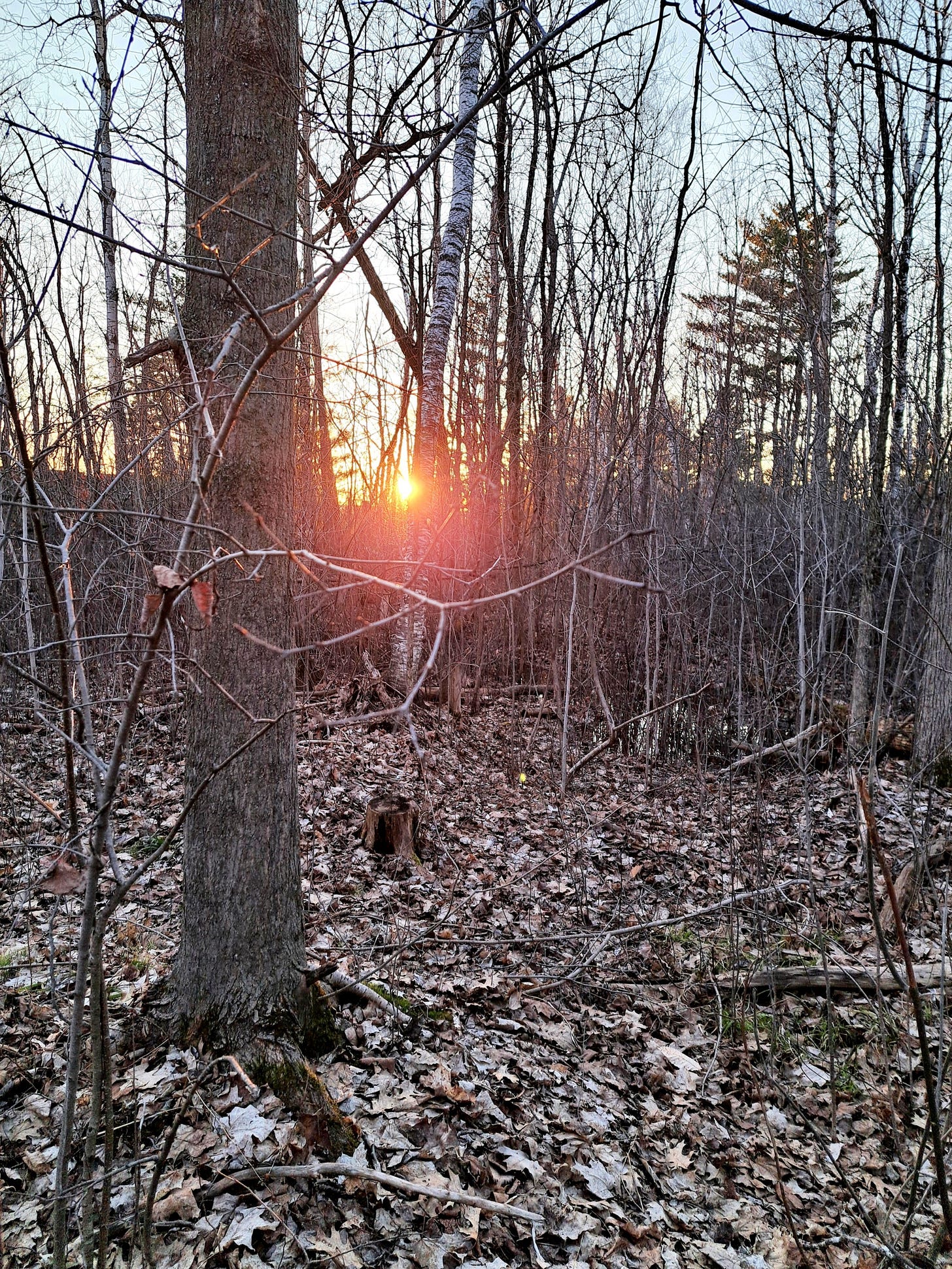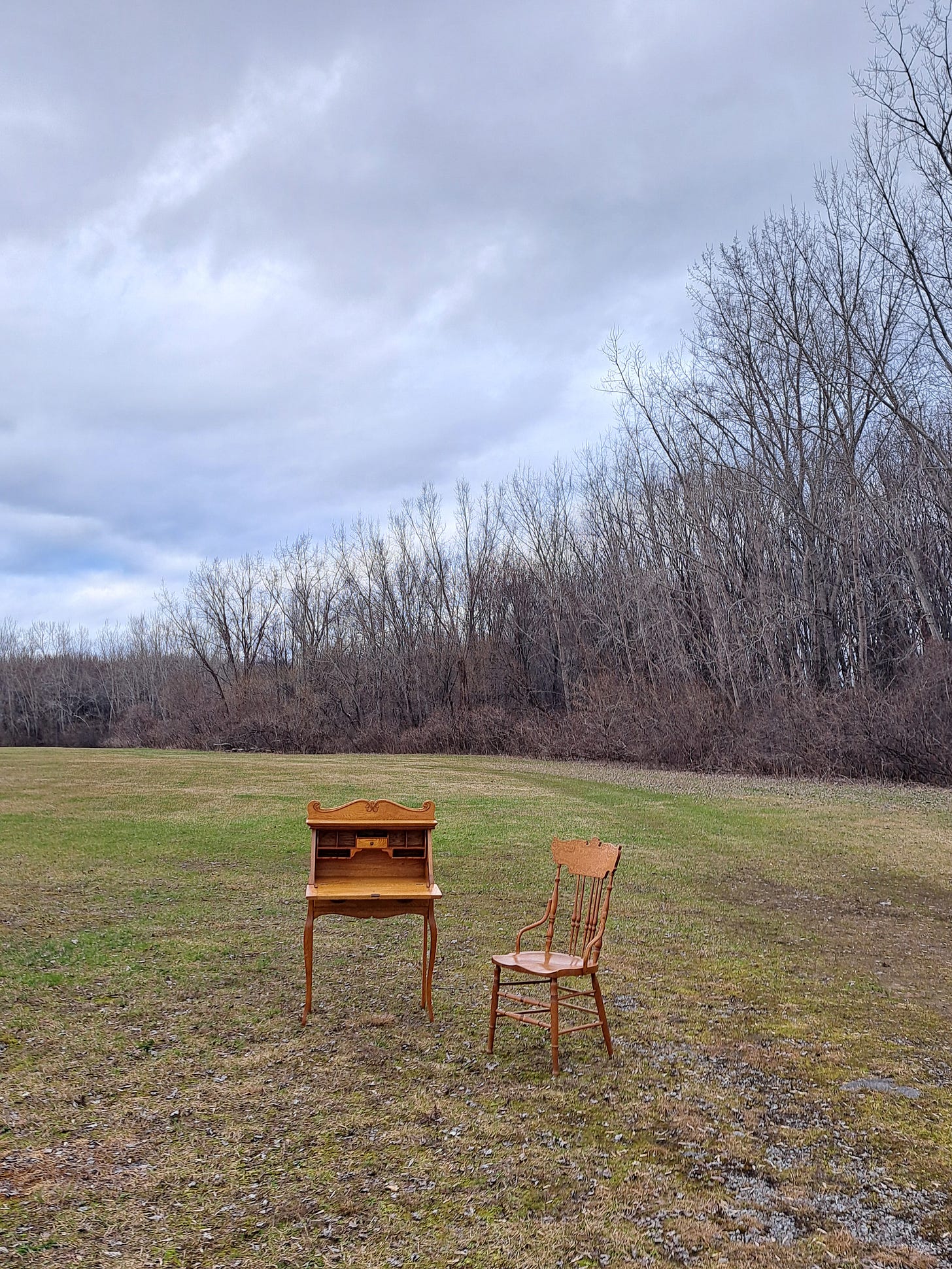Dear Fellow Dreamer,
Long ago, I remember hearing an interview with another writer who, when asked if she was working on a new book, laughed and rolled her eyes. “Oh, I don’t know. Each one requires so much of me. It takes me years to finish.”
For better or worse, I guess I’m that kind of writer. Only I do know with certainty that, yes, I’m getting started on my next book. Why? Well, that’s a mystery I can live with. Why do any of us feel drawn to follow a dream?
Rumi said, “What you seek is seeking you.” Over the decades, I’ve found that trusting in the Sufi poet’s maxim makes things simpler. Not always easy, and not perfect—there’s no such thing. But more fulfilling and joyful.
Over the past weeks, I’ve been immersed in the “final polish” stage of editing my soon-to-be-submitted novel manuscript, River of Dreams. This picky phase can be tedious. Yet like the others, it’s a stretch filled with a tough and abiding love. What makes this moment a little different is the readiness to let go.
In the spirit of honouring the process that any one of us goes through in finishing a creative project, I’m sharing a few poems with you today. Written over two decades ago, they point to the inspiration behind River of Dreams—one deep inside my bones. These pieces also form the continuation of an earlier post, “The Haunts We Seek.” For context, here’s an excerpt from it:
“In her thirties, my great-grandmother Jessie, a dynamic woman with a keen intellect and artistic sensibility, suffered depression after undergoing a procedure to remove a tumour. The operation had resulted in a complete hysterectomy, and Jessie’s sadness didn’t lift. Upon her doctors’ recommendations, in 1910, she was committed to Montreal’s Protestant Hospital for the Insane where she lived until 1960, when her body was returned to the Townships.
“Eventually, I’d come to recognize that the effects of that trauma had remained in my family—the effects of one mother’s long-ago removal and disappearance. For that reason, as a writer, I’ve felt compelled to explore 20th-century treatments of institutionalized women and their families. One of the settings in my forthcoming novel, River of Dreams (2026), is a 1920s mental hospital.”
While the manuscript I’m in the last days of completing is not about my great-grandmother, it is dedicated to her. And to all the women who vanished.
From my book, In Green, published by Guernica Editions © Robin Blackburn McBride
Stumps and Roots
Something makes me step back Over the raised doorsills of time. I step without stumbling, careful not to let others hear, avoid rusty nails strangers poison fruit. I shrink to the size of an unpricked finger, move cautiously over the pages in our fairy tale collection. Here is a picture of the girl with her basket. How can I tell my daughter, who I read to, that the child we see on the page is me? Walk anyway past stumps and roots to where parents lose their young in shadows and a bear could snap a neck like wood. Crawl into the house too snug for my skin. Bones pressed tight in lath and plaster swaddling. My ancestor draws me calls me to reach in to where each small detail looms. Her life played out in whispers here, a forest warning. In childhood we are closest to the ghosts that formed us. I must go back to know better where I came from. No need to mark the trees with the tip of a silver knife. I recognize the way.
Wedding Gift
My father hauls the desk, a relic wedding gift from a farm on the Eleventh Range. They whip along highways wind-beaten through two provinces to the refinisher who holds it fleetingly in acid hands and sends it on— my Toronto door blown open. My father explains how they did their best to eliminate strike marks and other scratches on the surface of the boards. “The grain has come up quite nicely,” he says. Keys once lost have been replaced. Doctors’ letters locked inside pronounced the bride’s fate years ago: the necessity of her early parting contradicted the craftsman’s symmetry. Stark words have been removed before the wooden legs are carried across my threshold.
Letters
Asking my father for the letters that were shut away plays out a family song of dread. I am aware, as I make the call, of how he might respond. Numerous throat clearings, shovels full of earth. In my mind the two of us stand eye to eye, spade to spade, silhouettes on an unnamed field. He knows that when he leaves I will stay, that where he has filled I will dig. There is respect in the turning of a back and trust in walking, the sound of metal hitting objects underground.
Harvest
I discover she was exiled for sadness and I wonder if she chose her ride. Each time her husband came to visit her she cried and they sent a letter after him. One day he stopped. Went back to ploughs that were easier to pull than her heart behind him. The source of her pain remains undocumented. I could search through all the pages and never find her sorrow spelled in words. Somewhere the woman’s heart found a place to hide from all who had marked it. Furrows scored deep in the silent land of muscle she harvested alone.







Your poems bring light and wisdom to a very painful story. Thank you for sharing them!
These poems are hauntingly beautiful, Robin. I am so glad to be able to hear you read them.
Wishing you luck in revising the novel. I know that feeling of taking long, obsessing over details. I also know I must get back to book V in the Edge of Yesterday series, Struck by Stars. To finish writing the story and wrap up the series (at least for now). I keep getting distracted (distracting myself!) I admire your focus in going through final edits in your novel.